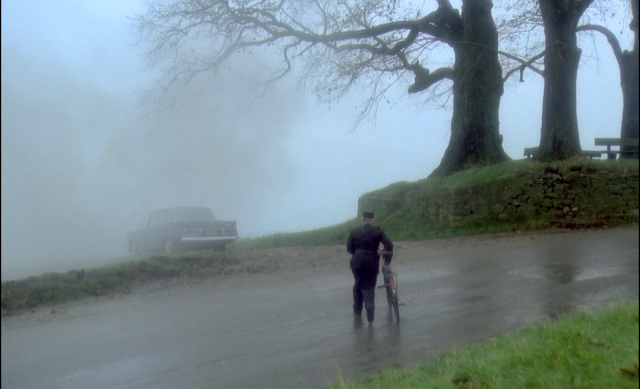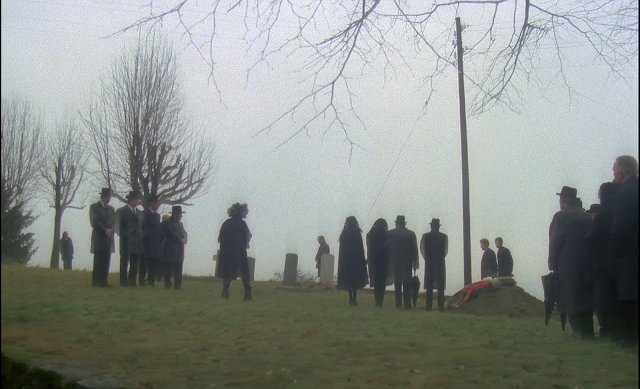FRIEDRICH DÜRRENMATT: THE JUDGE AND HIS
HANGMAN, OR WHY THE GERMANS NEED (NEEDED?) BETTER NOVELS.
Not quite the venue that Friedrich Dürrenmatt (*1921-†1990) would
have imagined for a first acquaintance with his opus: The small auditorium of
the “American-Paraguayan Cultural Centre” in Asunción, Paraguay, in 1970 or
1971 Although his plays were already known all over the world at that time, and
such a premiere would have been totally plausible in any small African country,
as well.
It was the play Die Physiker (1962), The Physicians,
the Swiss dramatist’s second world-success after The Visit of the Old Lady
(1956), which I would watch only decades later on English television during my
London years (1977-1985, 1988-91). The Physicians is a cogent metaphor
about the danger of technical progress, when it happens to fall into the hands
of people seeking world-hegemony. Hence the responsibility of clever scientists
(obeying ethics as the ultima ratio) who disguise themselves as madmen
in order to avoid their discoveries being perverted by the forces of evil.
Such a topic in the context of a military dictatorship was a bold undertaking, since the immoral manipulation of the power of science and technology could be "passed on" to other areas of society ‒leaning towards military totalitarianism, for example. However, this possibility seemed very small to those in power at the time, or it was simply not understood.
I became better acquainted with Dürrenmatt's prose in the early 1990s.
It was in Paris, France, and first came Greek Man Seeking Greek Woman
(1955), usually translated as Once a Greek, a humorous fantasy about a
Greek man's search for the right Greek woman, just in Paris; written, if I can
remember well, in a few months, since Friedrich Dürrenmatt needed money to
enable surgical intervention for his wife. Like almost all of the author's
works, this novel reveals itself on different layers. There is a successful,
subtle portrayal of French society and politics in those years, sometimes
pigmented with elegant satirical glosses. And this substratum remains valid,
spotlights that continue to illuminate today's conditions in the same country.
Above all, it concerns the role of “flirts”, of a varied degree of physical
intensity, be it res publica, be it private, at the core of
political power ‒and they have
their hands full. Rien de nouveau sous le soleil.
Alphons Clenin, the Twann policeman, found a blue Mercedes on the
morning of November 3rd ...) on the side of the road. There was fog, as often
in this late autumn ... ”[2]
The Judge and His Hangman (1950)[1] first appeared in eight episodes in theweekly magazine Der Schweizerischer Beobachter, between 1950 and 1951, and achieved great success. The first English version was published in 1954, the earliest film version came in Germany in 1957 and in Great Britain in 1961, British Broadcasting Corporation (BBC). This was followed by five new cinematic adaptations, plus an opera in 2008[3].
The funeral of the lieutenant Schmied, "Fog," Fog "...
Commissioner Bärlach (Martin Ritt) tries to pierce the fog, hoping
he might find the murderer even there, in the cemetery itself...
The colleagues of the murdered policeman mourn the deceased…
Inspector Tschanz (Jon Voigt) does not lose time to benefit from the departed partner’s female companion (Jacqueline Bizet) ...
Gastmann (Robert Shaw), “criminal, occasional philosopher and
nihilist” “You have to hurry, Bärlach, you don't have any more time. The
doctors will give you another year if you have an operation now. ”[5]
The "story" between Bärlach and Gastmann began in
Istanbul, in Turkey, before the war, when the commissioner was training the
Turkish police. In a multi-ethnic dive-bar amid clouds of strong alcohol,
Gastmann (who called himself differently at the time) bets that he would commit
a crime that not even Bärlach, a trained criminologist, could prove. Shortly
afterwards, Gastmann pushes a German businessman from the bridge into the
Bosporus, who drowns himself despite Bärlach's attempts to rescue him. Bärlach
was unable to present any evidence to the police, while Gastmann emphasized
that the businessman had simply committed suicide because he was about to go
bankrupt.
This is a hard, almost humiliating, defeat for an experienced police
officer and criminologist, who also considered himself a decent person.
And decades later, Gastmann reappeared in Switzerland, now as an
“Argentine” citizen of the world and a former special envoy to China,
millionaire and cosmopolitan aesthete (on the surface), who had the toupet to decline an
invitation from the French government to join the Académie Française.
The strength of this novel relies on a clever kaleidoscope of key questions of the
twentieth century. There are many crimes that go undetected, and sometimes the
criminal manages to endorse the blame upon an innocent. A paramount ethical
issue: Can one accuse a person of a crime that he did not commit, in order to
punish him for another crime that he committed a long time ago?
The plot and the philosophical leitmotifs are underpinned by a
noun-driven, extremely compressed language, whose muscles are tense to the
utmost. It resembles a well-oiled pistol, whose bullets rush through the entire
text like laser-beams, shining through the “fog” in the novel.
There is no redundant word, thus no need to add a new one.
Language, as if it were made only of bones. Which does not rule out
subtle and striking humour plus cleverly selected references to music and
painting, appearing unpretentiously in the text.
Bärlach and Tschanz try to spy on an ultra-elegant soirée with
high-ranking politicians, business people and artists in Gastmann's house, but
are attacked by a huge dog, more like a beast. Tschanz shoots the dog with his
pistol. One of the celebrities at that Gastmann soirée, National Councilor
von Schwendi, will later meet with Bärlachs' superior, Dr. Lucius Lutz, to
protest most adamantly. How on earth did the Swiss police come up with the idea
of torpedoing a sophisticated meeting of the créme de la créme of the
national and international business world, with top-class artists, in such an
illegal and clumsy way:
"... you just don't shoot a dog when Bach is being played."[6]
Shortly after his appearance, The Judge and his Hangman, was
eulogized almost everywhere, even celebrated as the arrival of a new genre in
German-language literature. The back cover of the first paperback-edition marks
this "turning point" in contemporary literature in the
German-speaking world:
"One of the most interesting contemporary representatives
enriches German literature with this exciting novel with a genre that it hardly
knows, the literary detective-novel that follows the tradition of Chesterton
and Graham Greene."[7]
The Basler Nachrichten published a most original review:
“Rare is the apparition of novel which does not talk, with warm
emotions and tireless simplicity, about the follies of a pseudo Swiss everyday
life and the average educational path of average high school students, but
rather creates its images and characters out of the very Swiss reality (which
is an unknown), propelled by plentiful fantasy and a certain innate right of
seduction. That's bad, because novels are about as important to the education
of people as schools. What would the English be without their novels, and what
would the Germans be if they had better novels. "
No doubt: It is a‒relatively elegant‒rebuke by the "small canton”, aimed at the "big canton,
up north". The atmosphere of the immediate post-war period was yet to fade
away, the big accusations were there, waiting for some answer. It would be
highly risky, albeit amusing, to draw the conclusion from such a citation, that
the Second World War could have been avoided if the Germans had had such good
novels as the English ones.
The term "novels" is used here ‒not "literature".
And novels further in a certain tradition, “story-telling”. The
English, to put it better, the "British", built up a colossal
narrative corpus over the last centuries, an achievement hardly to be found in
other national literature. The French will surely object.
“The English novel” is a privileged
species, and it still functions today as a reliable
anchor of that culture, that society. The novel has the advantage of being more
concrete, tangible, and down to earth, than a symphony or even a painting. It
is a "portable home".
Anchor, diversity, hope but also a warning to give free rein to the
imagination, knowing that it is also necessary to “limit” oneself. You can't
expect a better school.
The Germans had already published good novels. Whether they should
have written much better ones remains a question-mark. Not to be forgotten,
however, that of the three German-speaking writers who received the Nobel Prize
for Literature over the past twenty years, two were born in Austria and the
third in Rumanian.
But that's just one of many indicators. And maybe not the most
relevant. Friedrich Dürrenmatt proved, in any case, that the German language
can be used to write novels, as good as those of the English.
[1] Dürrenmatt, Friedrich. Der Richter und sein Henker. Mit 14 Zeichnungen von
Karl Staudinger. Rowohlt. 1955..
[2] Dürrenmatt, Friedrich. Der Richter und sein Henker. Mit 14 Zeichnungen von
Karl Staudinger. Rowohlt. 1955, p. 3.
[3] Opera
of Franz Hummel, first performance on
8.11.2008, in Erfurt, Germany.
[4] P.
47.
[5] P. 64.
[6] P. 54,
German edition. Our translation.
[7] Rowohlt Verlag.












No comments:
Post a Comment